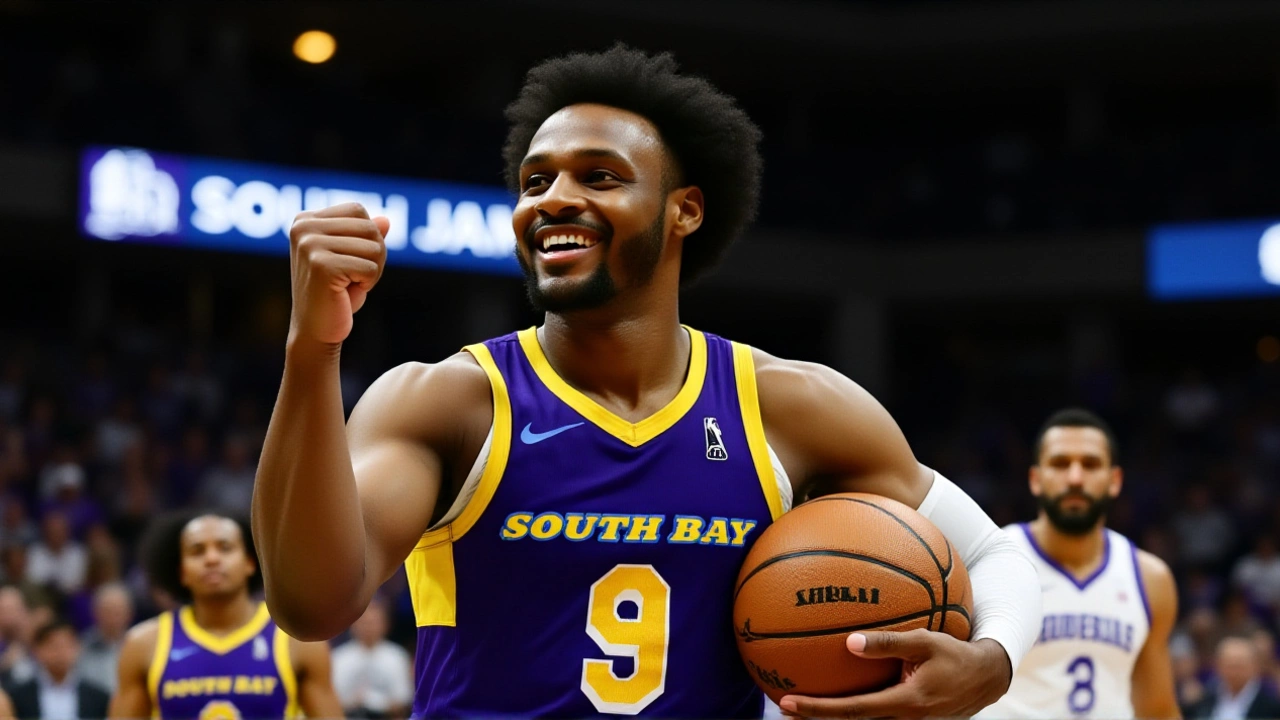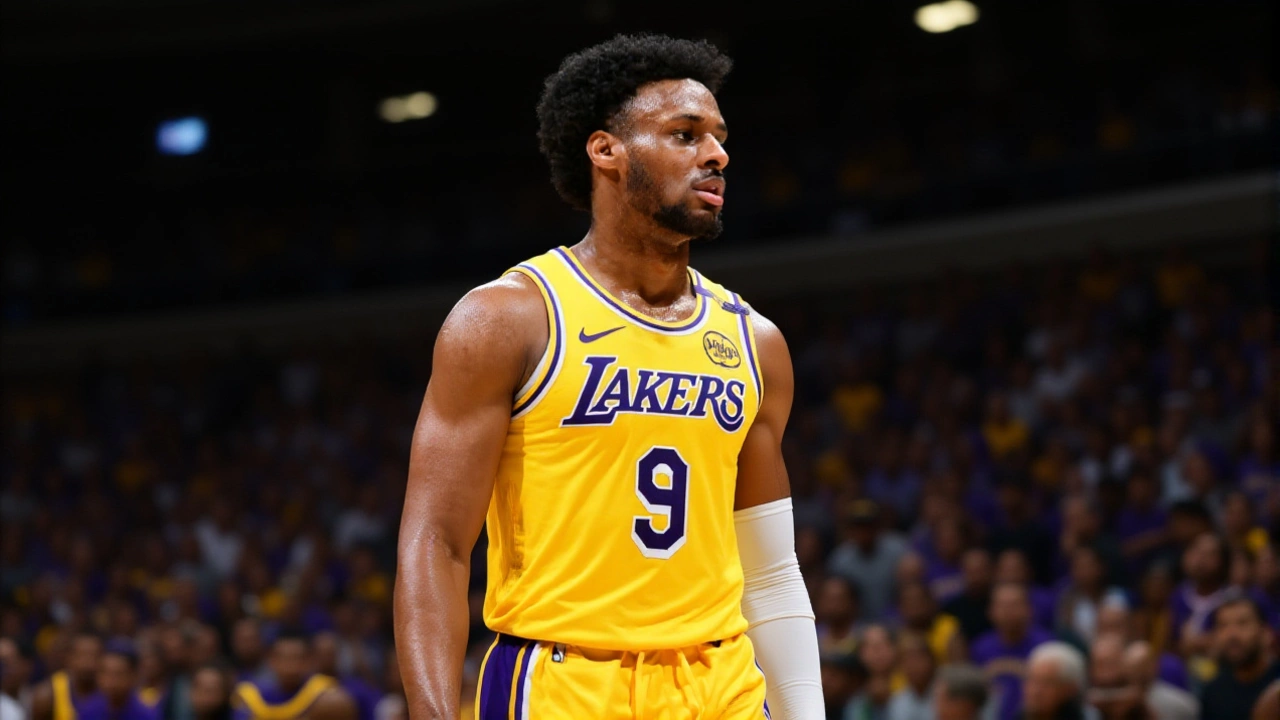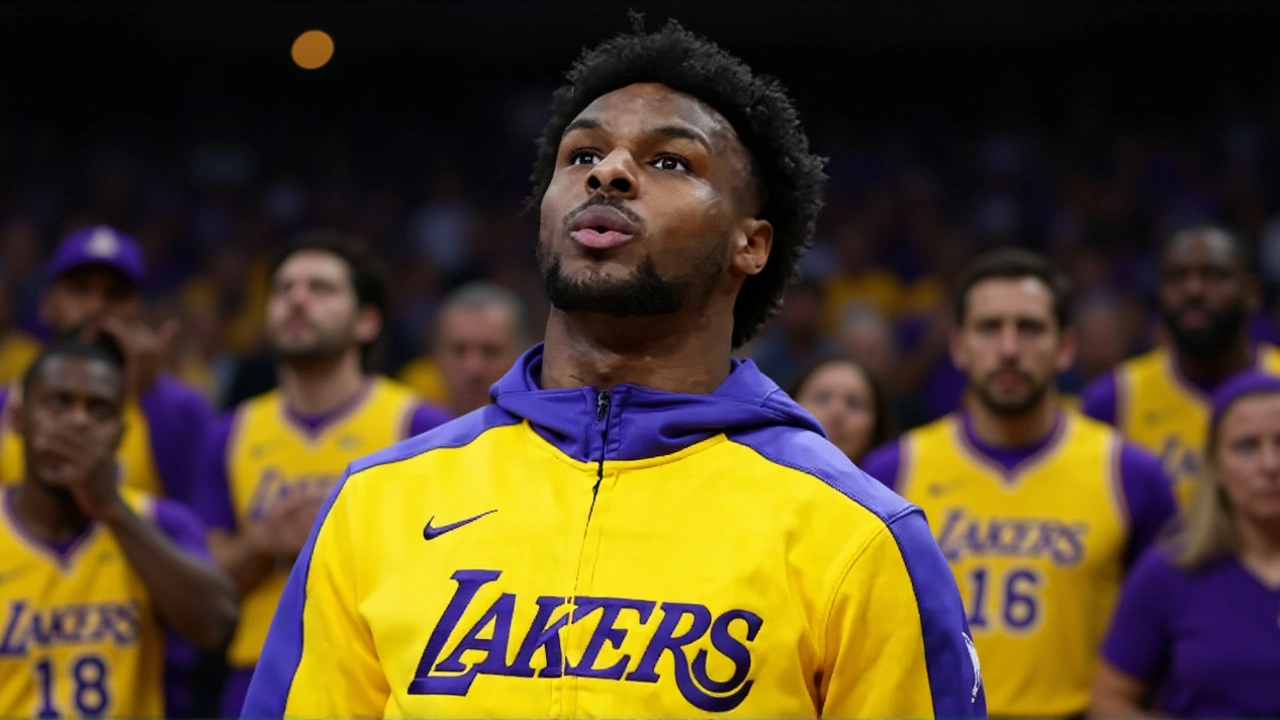On a cold Saturday night in Milwaukee, Bronny James stepped onto the court for the Los Angeles Lakers’s matchup against the Milwaukee Bucks at Fiserv Forum with more eyes on him than any rookie in recent memory — and left with zero points. According to Harshita Saxena of Essentially Sports, the 20-year-old guard played 11 minutes in the fourth quarter, helping secure a 118-112 win, yet failed to register a single basket, free throw, or assist. The silence from his stat line echoed louder than the crowd. But here’s the twist: The Times of India published a report the next day claiming James dropped a career-high 17 points in the same game, including three three-pointers that supposedly outshone Ben Simmons’s shooting struggles. The contradiction isn’t just confusing — it’s revealing.
Conflicting Reports, Deeper Questions
The discrepancy between reports isn’t a simple typo. It’s a symptom of the pressure surrounding Bronny James — a young player whose name carries the weight of a basketball dynasty. One outlet says he was invisible. Another says he was brilliant. The truth? We don’t know yet. NBA box scores are official, and the league’s official stats show no points, no assists, no steals for James in that game. But the fact that a major international publication would publish an alternate version speaks volumes. Fans aren’t just watching his game — they’re watching his legitimacy.
Even the comparison to Simmons — a once-hyped prospect who never developed a reliable jump shot — feels loaded. Simmons, born in Melbourne, Australia, was drafted first overall in 2016 and spent years as a defensive maestro who couldn’t shoot. James, by contrast, has shown flashes of playmaking in the G League. But the narrative sticks: Can he shoot? Is he here because of his dad? That question isn’t going away, no matter how many three-pointers he misses.
The Numbers Behind the Noise
Before Saturday’s game, James was averaging 2.3 points and 1.9 assists in 12.1 minutes per game — a noticeable jump from his rookie year’s 6.7 minutes. His field goal percentage sat at 29.2%, and he was hitting just 25% of his threes. Those aren’t stellar numbers, but they’re not catastrophic for a 20-year-old learning the NBA game. The real story lies in his G League stats: 18.6 points, 4.8 assists, and 41.6% shooting over 18 games. That’s not a developmental project — that’s a player ready for more. But the Lakers, under head coach JJ Redick, are playing it safe. Too safe, some say.
And the clock is ticking. James is in year two of a four-year, $7.9 million contract. The 2026-2027 season? Only 50% guaranteed, according to analytics veteran John Hollinger. That means if he doesn’t show significant improvement by next October, the Lakers can cut him without financial penalty. That’s not just pressure — it’s a deadline.

Family Legacy, Not Just Family Name
Let’s not pretend this is just about Bronny. His father, LeBron James, the four-time MVP and Lakers’ small forward, is 40 years old. He’s still dominant — but time doesn’t pause for legends. The Essentially Sports article quietly dropped this line: “If LeBron decides to exit, retirement or free agency, Bronny might suddenly find himself auditioning for the next season.” That’s the unspoken truth. Bronny’s future isn’t just tied to his own development — it’s tied to his father’s career timeline.
And yes, the shooting struggles? They’re not random. The article noted: “Even the King had his limits: his longest recorded NBA shot was a wild 83-footer back in 2007. So when Bronny struggles from long range, it’s not a shocker; it’s practically a family tradition.” That’s not an excuse — it’s context. LeBron never relied on the three-ball early in his career. He built his game from the paint outward. Bronny might be doing the same. But the NBA doesn’t reward patience when the spotlight is this bright.
What’s Next for the Lakers’ Future?
The Bucks, led by Giannis Antetokounmpo and coach Doc Rivers, are playoff-bound. The Lakers? They’re clinging to a playoff spot in the West, and every rotation decision is under a microscope. Redick has publicly pushed for more minutes for James. But management? They’re watching the contract clock. Jeanie Buss, the Lakers’ controlling owner, inherited a legacy — and now she’s managing one of the most delicate talent decisions in modern sports history.
Next week, the Lakers face the Warriors. Then the Suns. Then the Clippers. Each game is a test. Will James get 18 minutes? 22? Will he start? Or will he stay on the bench, quietly waiting for his moment — or his release?

Why This Matters Beyond the Box Score
This isn’t just about one player’s performance. It’s about how sports organizations handle legacy athletes’ children. Is Bronny being given a fair shot? Or is he being held to a different standard — one where failure is scrutinized as nepotism, and success is dismissed as luck? The NBA has seen sons of stars before: Kobe Bryant’s daughter, Gigi, dreamed of the game. But no NBA player has ever entered the league with this level of scrutiny, this level of financial stakes, and this level of public expectation.
For the Lakers, this is more than roster management. It’s legacy preservation. For Bronny, it’s identity. And for fans? It’s a chance to decide whether they’re watching a player — or a prophecy.
Frequently Asked Questions
Why is Bronny James’ contract only 50% guaranteed for next season?
Under NBA rookie scale rules, the third-year salary of a second-round pick (or a player drafted in the first round with a non-guaranteed fourth year) can be partially guaranteed. James’ 2026-2027 salary is 50% guaranteed, meaning the Lakers can waive him before July 1, 2026, and owe only half his salary. This structure gives teams flexibility to cut underperforming rookies without full financial penalty — a common tactic for players whose development lags.
How does Bronny James’ G League performance compare to other top prospects?
James’ G League averages — 18.6 points, 4.8 assists, 41.6% shooting — rival those of current NBA starters like Tyrese Haliburton and Cade Cunningham at similar stages. Haliburton averaged 19.1 points and 8.2 assists in the G League before his breakout. James’ shooting efficiency is slightly lower, but his playmaking and defensive instincts are comparable. The gap isn’t talent — it’s opportunity.
What’s the history of NBA players being compared to Ben Simmons?
Simmons became the default comparison for tall, athletic guards who don’t shoot — from Lonzo Ball to Paolo Banchero. The label sticks because it’s shorthand for potential unfulfilled. But Simmons was a No. 1 pick who struggled with mental blocks and shooting mechanics. James, drafted 55th overall, isn’t under the same pressure — yet the media still uses Simmons as a cautionary tale, turning every miss into a headline.
Could Bronny James be traded before his contract is fully guaranteed?
Yes. The Lakers could trade James at any time, even if his contract isn’t fully guaranteed. Teams often trade players with partial guarantees to clear cap space or acquire draft picks. If James doesn’t improve by mid-season, the Lakers might package him with a future second-rounder to a rebuilding team willing to take a gamble on his upside — especially if LeBron’s future remains uncertain.
Has any NBA player with a superstar parent had a similar development path?
Kobe Bryant’s father, Joe, played in the NBA, but Kobe was a lottery pick with immediate impact. More relevant is Jalen Suggs, whose father played college ball — but no player in recent memory has entered the league with Bronny’s combination of media scrutiny, contract uncertainty, and familial legacy. Even JaVale McGee’s father, a former NBA player, didn’t face this level of public debate.
What happens if LeBron James retires after this season?
If LeBron retires, Bronny’s role could expand immediately — but so would the pressure. The Lakers would need him to be a cornerstone, not a project. Without LeBron’s presence, the team might prioritize winning over development, potentially accelerating Bronny’s minutes — or accelerating his exit. The organization’s decision would reveal whether they see him as a future piece, or merely a footnote in his father’s story.





